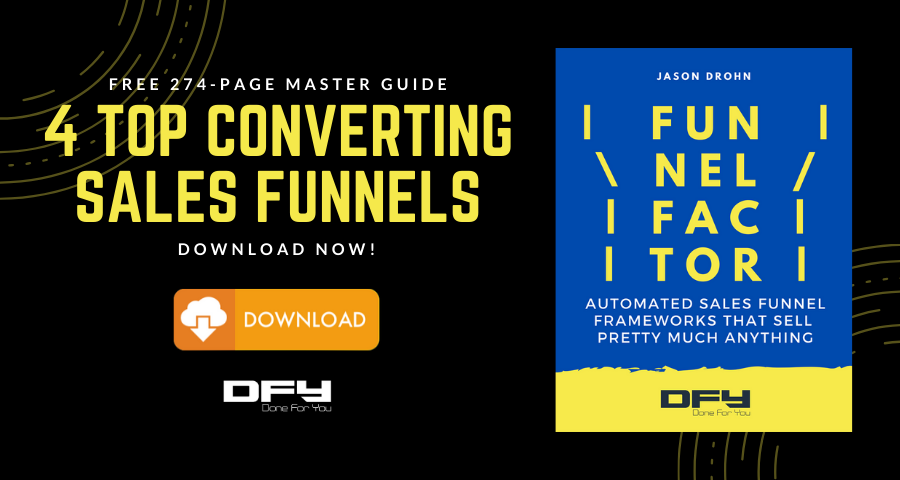In today's fast-paced digital world, understanding how to qualify leads through your website is crucial for business success. Navigating the maze of online visitors can be challenging. While you may have some insight from paid traffic campaigns or SEO rankings, the reality is that your website has numerous entry points. The user journey has multiple steps, whether a blog post or a landing page.
The Initial Contact: Setting the Stage
Most visitors will likely land on a blog post or some specific page before they ever get to your homepage. How they interact, click around, and explore your site can tell a lot. So, how do you funnel these unknown prospects into qualified leads? One highly effective strategy is to use an application or contact form.

The Power of the Application Form
We love using application forms to qualify leads; this approach has also proven effective for many of our clients. Don't be put off by the term "application"—it's an enhanced contact form. Instead of asking for a name and email, these forms delve deeper. They're designed to ask the right questions that help you understand whether someone is a suitable buyer, subscriber, or customer.
Form Building Tools to Consider
Platforms like Wufoo, Survey Monkey, Typeform, and JotForm are excellent tools for crafting your application form. The key is not to make the paper too extensive. A limit of 10 questions is generally a good rule of thumb.
1. Wufoo
Wufoo is a famous online form builder offering various templates and customization options. It's easy to use, and you can create forms with conditional logic, making it ideal for complex applications.
Pros
- User-friendly with a simple drag-and-drop interface
- Variety of themes and templates
- Allows payment processing
- Advanced analytics and reporting capabilities
Cons
- Limited customization on the free plan
- It can get pricey with advanced features
2. Survey Monkey
Known chiefly for surveys, Survey Monkey also provides robust form-building capabilities. It's designed for user-friendliness, offering multiple question types and design flexibility.
Pros
- Intuitive and easy to navigate
- Excellent for surveys and data collection
- Mobile-friendly
- Seamless integration with various CRM systems
Cons
- Limited logic branching in the basic plans
- Additional costs for premium analytics features
3. Typeform
Typeform is known for its highly interactive and engaging forms. The platform focuses on creating a smooth user experience, making visitors more likely to complete your application.
Pros
- Highly customizable and interactive forms
- Allows users to complete forms in a conversational manner
- Excellent mobile responsiveness
- Offers a wide range of integrations
Cons
- It can be costly for small businesses
- Limited question types in the free plan
4. JotForm
JotForm is another robust online form builder that offers a wealth of features, including electronic signatures, payment processing, and advanced analytics to help qualify leads effectively.
Pros
- No coding skills required
- Excellent for HIPAA compliance
- Advanced form features like conditional logic
- Affordable pricing plans
Cons
- The user interface could be more intuitive
- Limited customization options on lower-tier plans
5. Google Forms
Google Forms is a free, no-frills form builder for simple applications. While not as feature-rich as other tools, it’s straightforward and integrates seamlessly with Google Drive.
Pros
- Completely free to use
- Easy integration with Google Drive and other Google services
- Suitable for basic needs
- Unlimited forms and responses
Cons
- Limited customization and design options
- Lacks advanced features like conditional logic or payment processing

10 Essential Questions for a Business Coach's Service Application Form
A well-crafted application form is invaluable to qualify clients and ensure a productive coaching relationship. Here are ten questions that a business coach should include on their service application form, along with why each question is essential.
- What is your primary business goal for the next 12 months? Understanding a client's objective helps gauge whether your coaching services meet their expectations and needs.
- Have you worked with a business coach before? If so, what was your experience? This question gives insight into the client's past experiences, setting the stage for managing expectations and avoiding pitfalls.
- What is your current annual revenue? Knowing a prospective client's financial standing helps tailor your coaching package to suit their budget and needs.
- What are your biggest challenges in achieving your business goals? Identifying key challenges helps focus the coaching sessions on areas that will yield the most impact.
- How many hours per week can you dedicate to coaching assignments and tasks? This helps you assess the client's commitment level, ensuring they have the time to invest in the coaching process.
- On a scale of 1-10, how committed are you to reaching your business goals? This question gauges the prospect's level of commitment and urgency, which can be a significant factor in the success of the coaching relationship.
- What specific skills or areas would you like to improve through coaching? Knowing what skills the client aims to develop helps customize the coaching program to meet those particular needs.
- Are you the sole decision-maker for investing in business coaching? If not, who else is involved? Understanding the decision-making process helps determine how to proceed with discussions and proposals.
- How did you hear about my coaching services? This question provides valuable information for marketing purposes and understanding which channels are most effective in attracting qualified leads.
- What is your preferred method of communication (email, phone, video call, etc.)? Knowing the client's communication preference aids in establishing a smooth and effective coaching process.
Including these questions on your service application form will help filter and qualify leads and set the stage for a more focused and result-driven coaching relationship.
Intelligent Routing for Effective Sales
You can route the leads to different sales reps based on their answers through conditional logic. For example, if your team can only clean four rooms a day and someone books six rooms, that's a two-day job requiring a specialized approach. You can set the form to direct these high-need customers to a different sales rep skilled in handling more complex orders.
Final Thoughts on How to Qualify Leads
Ultimately, qualifying leads efficiently allows you to be picky about who enters your sales funnel. If they're not a perfect fit, you can always redirect them to a sales video, a course, or even an Amazon link to purchase their carpet cleaner. On the other hand, if they fit your criteria, they get to speak with a sales representative to finalize the deal. Streamlining this process ensures you capture more leads and secure the most valuable ones for your business.

